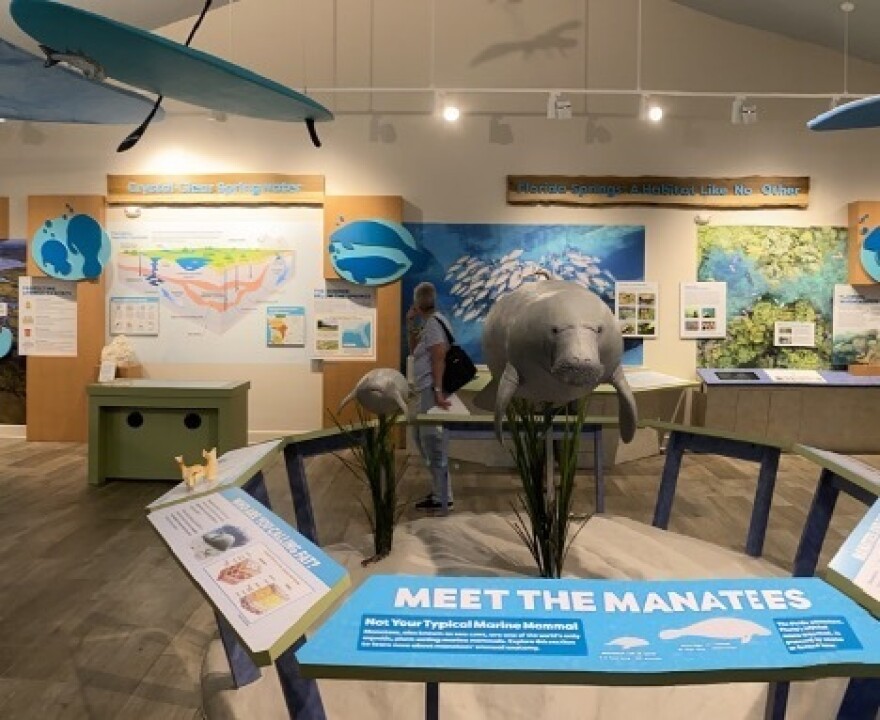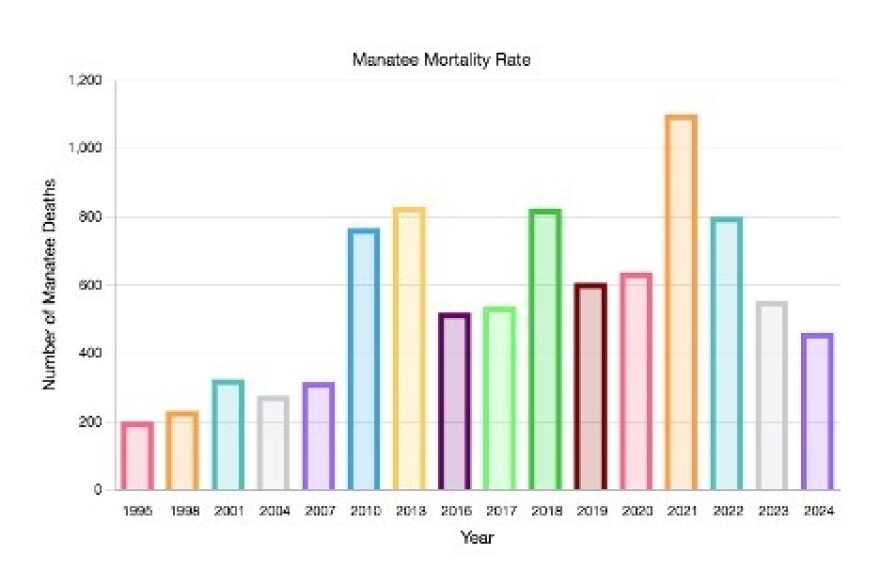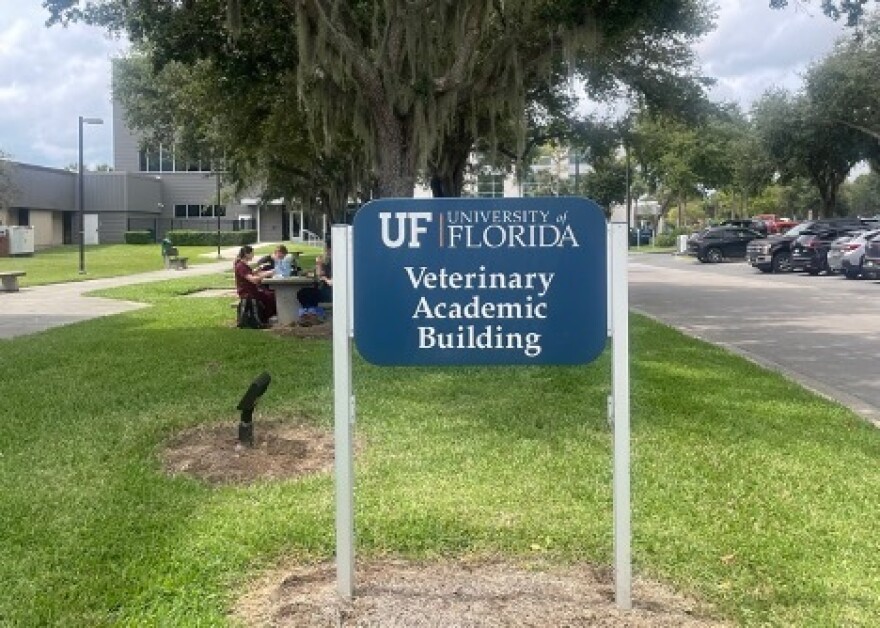As Hurricane Milton approaches, Crystal River researchers and wildlife advocates are concerned about how the second hurricane in less than two weeks will further impact manatee habitat.
Manatee biologist Tiare Fridrich said the effects of climate change are getting worse each year, which could create conditions for more frequent storms in the Crystal River area.
Manatees have historically migrated to Crystal River during the colder months, but climate change has become one of the main factors making it difficult for manatees to recover and survive.
According to the U.S. Fish and Wildlife Service, manatees have been a threatened species since 2017, when they were removed from the endangered species list. However, an increasing number of weather events in the area have scientists concerned about their recovery.
According to Fridrich, vegetation in Kings Bay, the headwaters of the Crystal River, has been significantly damaged by several recent hurricanes.
“I suspect we will have losses,” Fridrich said of Hurricane Helene and Hurricane Milton, which are expected to make landfall in the Tampa Bay area late Wednesday.
“Scientists have known for a long time that climate change is a problem, but I think we will start to see worse and more frequent storms,” Fridrich said.

Although Florida’s resident manatees have adapted to extreme weather events, Fridrich said hurricanes can cause them to go far inland where they normally wouldn’t go and become stranded when water levels drop.
“Even in areas that are typically manatee habitat… waters that drop to irregularly low levels may also leave manatees stranded,” they said.
“When tides rise, sea levels rise, there is an increase in storm events or storm surges from hurricanes, salty water enters freshwater areas,” said Mike Walsh, associate professor of aquatic animal health at the University of Florida. “They affect the food source, and then the animals can’t cope with the lack of food.”
Walsh said that while manatee numbers in the Crystal River have increased successfully, hurricanes cause saltwater to enter freshwater vegetation. This salty water can drive freshwater vegetation towards the Gulf because it cannot cope with the amount of salt there.
A few years ago, a reservoir restoration company replanted seagrass in the Crystal River area, which ultimately helped the species, Walsh said. However, this meant that the younger manatees had become accustomed to being close to a food source and most were probably unaware that food was also found in the Persian Gulf.
“When the last hurricane dumped saltwater into the Crystal River area, it didn’t kill everything. However, the situation had declined enough that there was less food for the increased numbers of manatees,” Walsh said.
He said there could be a delay in how quickly the manatee population responds to climate change-related actions, such as having to forage elsewhere.
“Climate change is changing their behavioral needs and what they have adapted to. They also adapt to new things, which makes it difficult for them to come back when something bad happens,” he said.

Pat Rose, 73, is the executive director of Save the Manatee Club, a support group in Florida. He remembers the moment more than 50 years ago when he first saw a manatee underwater at Kings Bay in Crystal River.
He said the first thing he noticed was the manatee’s huge scar – covering almost the entire right side. The manatee was gray-brown and had a white scar – a scar he had seen in the murky water before he had seen the large manatee.
“For me, it helped develop my empathy and commitment to wanting to do something, even when I was a teenager,” he said.
Some of the club’s priorities include reducing the causes of manatee mortality and rescuing sick or injured manatees and nursing them back to health before returning them to the wild.
Food sources are threatened by major saltwater or freshwater intrusion, which is a large amount of water entering space, Rose said.
He said that because climate change is causing sea levels to rise, especially with the Crystal River so close to the coast, plants have less access to sunlight, making it more difficult for them to grow sustainably.
“It just shows how these, you know, vegetative species are influenced by both the ability to have enough light and the appropriate, you know, persistence for that species,” he said.

Seagrass is a salt-tolerant plant, and Vallisneria, commonly called seagrass, is a freshwater plant. Therefore, the flow of water into one of them is fatal to the vegetation.
“If you change from one to the other very slowly over time, either the salt-tolerant seagrass works its way upstream, or if you have a lot of freshwater, the freshwater species will kind of expand their range downstream toward the Gulf.” he said.
Rose stated that when these intrusions occur too quickly, it eliminates the chance of any of the food sources surviving.
“It used to be [sea]the grass will be submerged and will not survive,” said Jim McCarthy, commissioner of environmental regulations and former CEO of the North Florida Land Trust.
McCarthy said the lack of vegetation affects manatees’ ability to survive. McCarthy said sea level rise is a big problem and he wishes more people would step up to help.
“I think most people tend to think it’s too big for them to influence,” he said. “And that’s not true.”
#Climate #change #hurricanes #blamed #destroying #manatee #food #sources